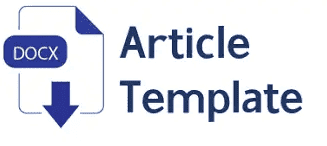Adaptive Strategies for Coastal Resource Management in the Era of Climate Change: Literature Review
DOI:
https://doi.org/10.71435/639063Keywords:
Climate Change Adaptation, Coastal ManagementAbstract
Purpose: The study aims to clarify the responsive steps taken in the management of coastal resources in order to address the growing climate stresses. It seeks to identify and categorize adaptation approaches, and to evaluate their effectiveness in promoting sustainable and resilient governance.
Subjects and Methods: The research is a systematic literature review based on 84 peer-reviewed journal articles and authoritative grey literature published between 2000–2025. The analysis focused on identifying patterns, typologies, and governance frameworks employed in coastal resource management.
Results: The review identified a typology consisting of four main areas of response: (1) Institutional and policy-based modes; (2) Community-based adaptation; (3) Ecosystem-based frameworks; (4) Technology-infrastructure responses. Findings reveal increasing complexity in coastal governance under conditions of epistemic uncertainty, with innovation occurring alongside institutional inertia. Decentralized governance has gained prominence but remains limited by regulatory constraints, jurisdictional fragmentation, and short-term focus. Ecosystem-based interventions offer long-term benefits but face challenges in policy integration and implementation. Technological and infrastructure responses help manage immediate risks but often neglect equity and long-term resilience.
Conclusions: The study highlights the need for systems-based, iterative-learning, and cross-scalar interaction frameworks in adaptive governance. It suggests that future management should move beyond short-term fixes and adopt proactive, inclusive, and resilient approaches. The findings offer both theoretical and empirical opportunities for policy change, capacity building, and improved resource planning to confront escalating climate impacts.
References
Abbass, K., Qasim, M. Z., Song, H., Murshed, M., Mahmood, H., & Younis, I. (2022). A review of the global climate change impacts, adaptation, and sustainable mitigation measures. Environmental science and pollution research, 29(28), 42539-42559.
Agger, A., & Tortzen, A. (2023). ‘Co-production on the inside’–public professionals negotiating interaction between municipal actors and local citizens. Local Government Studies, 49(4), 801-820. https://doi.org/10.1080/03003930.2022.2081552
Allen, C., Malekpour, S., & Mintrom, M. (2023). Cross‐scale, cross‐level and multi‐actor governance of transformations toward the sustainable development goals: A review of common challenges and solutions. Sustainable Development, 31(3), 1250-1267. https://doi.org/10.1002/sd.2495
Asari, N., Suratman, M. N., Mohd Ayob, N. A., & Abdul Hamid, N. H. (2021). Mangrove as a natural barrier to environmental risks and coastal protection. In Mangroves: Ecology, Biodiversity and Management (pp. 305-322). Singapore: Springer Singapore.
Behr, H. (2021). Technocracy and the Tragedy of EU Governance. Journal of Contemporary European Research, 17(2).
Bell, K., & Reed, M. (2022). The tree of participation: a new model for inclusive decision-making. Community Development Journal, 57(4), 595-614. https://doi.org/10.1093/cdj/bsab018
Brown, G. D., Largey, A., McMullan, C., Reilly, N., & Sahdev, M. (2023). Weathering the storm: Developing a user-centric weather forecast and warning system for Ireland. International journal of disaster risk reduction, 91, 103687. https://doi.org/10.1016/j.ijdrr.2023.103687
Chaudhary, S., Adhikari, B. R., Chaudhary, P., Dorji, T., & Poudel, R. (2021). Ecosystem-based adaptation (EbA) in the Hindu Kush Himalaya: Status, progress and challenges. Ecosystem-based disaster and climate resilience: Integration of blue-green infrastructure in sustainable development, 29-51. https://doi.org/10.1007/978-981-16-4815-1_2
Darjee, K. B., Sunam, R. K., Köhl, M., & Neupane, P. R. (2021). Do national policies translate into local actions? Analyzing coherence between climate change adaptation policies and implications for local adaptation in Nepal. Sustainability, 13(23), 13115. https://doi.org/10.3390/su132313115
Drogkoula, M., Kokkinos, K., & Samaras, N. (2023). A comprehensive survey of machine learning methodologies with emphasis in water resources management. Applied Sciences, 13(22), 12147. https://doi.org/10.3390/app132212147
Fors, H., Hagemann, F. A., Sang, Å. O., & Randrup, T. B. (2021). Striving for inclusion—A systematic review of long-term participation in strategic management of urban green spaces. Frontiers in Sustainable Cities, 3, 572423. https://doi.org/10.3389/frsc.2021.572423
Khan, A. S., & Srivastava, P. (2025). Bridging the Gap Between Environmental Justice and Ecosystem Management: A Comprehensive Framework for Equitable Sustainability. In Green Equilibrium: Deciphering Earth's Ecosystems for Sustainable Tomorrow (pp. 295-307). Singapore: Springer Nature Singapore.
Kuzior, A., Yarovenko, H., Brożek, P., Sidelnyk, N., Boyko, A., & Vasilyeva, T. (2023). Company cybersecurity system: assessment, risks and expectations. Production Engineering Archives, 29, 379-392.
Mikhaylov, A. S., & Plotnikova, A. P. (2021). The coasts we live in: can there be a single definition for a coastal zone?. Baltic Region, 13(4), 36-53. https://doi.org/10.5922/2079-8555-2021-4-3
Moyo, I. (2023). Beyond a tokenistic inclusion of indigenous knowledge systems in protected area governance and management in Okhahlamba-Drakensberg. African Geographical Review, 42(2), 141-156. https://doi.org/10.1080/19376812.2021.1997613
Muzamil, M. R., Tschakert, P., Boruff, B., & Shahbaz, B. (2021). Institutional dimensions of post-flood recovery in war-affected Swat, Pakistan. International Journal of Disaster Risk Reduction, 65, 102526. https://doi.org/10.1016/j.ijdrr.2021.102526
Orlove, B. (2022). The concept of adaptation. Annual Review of Environment and Resources, 47(1), 535-581. https://doi.org/10.1146/annurev-environ-112320-095719
Paul, K., & Jha, V. C. (2021). Paradigm shifts in geographical research and geospatial applications. Sociedade & Natureza, 33, e59651. https://doi.org/10.14393/SN-v33-2021-59651
Rahman, M. S., Sarker, P. K., & Giessen, L. (2022). Super-bureaucracy in climate adaptation governance in Bangladesh. Climate and Development, 14(5), 459-471. https://doi.org/10.1080/17565529.2021.1937029
Schéré, C. M. (2024). The role of ecosystem management in achieving the conservation objectives of Irish Sea marine protected areas. Sea, 27(7), 596-610.
Selje, T., Schmid, L. A., & Heinz, B. (2024). Community-based adaptation to climate change: core issues and implications for practical implementations. Climate, 12(10), 155. https://doi.org/10.3390/cli12100155
Singhvi, A., Luijendijk, A. P., & van Oudenhoven, A. P. (2022). The grey–green spectrum: A review of coastal protection interventions. Journal of Environmental Management, 311, 114824. https://doi.org/10.1016/j.jenvman.2022.114824
Staub, T. G. (2025). Complexity, Polycentricity, and Climate Change: An Embedded, Multi-Level Case Study of a Climate Meta-Network (Doctoral dissertation, Antioch University).
Touza, J., Lacambra, C., Kiss, A., Amboage, R. M., Sierra, P., Solan, M., ... & White, P. C. (2021). Coping and adaptation in response to environmental and climatic stressors in Caribbean coastal communities. Environmental management, 68(4), 505-521. https://doi.org/10.1007/s00267-021-01500-y
Trujillo-Torres, J. M., Aznar-Díaz, I., Cáceres-Reche, M. P., Mentado-Labao, T., & Barrera-Corominas, A. (2023). Intergenerational learning and its impact on the improvement of educational processes. Education Sciences, 13(10), 1019. https://doi.org/10.3390/educsci13101019






